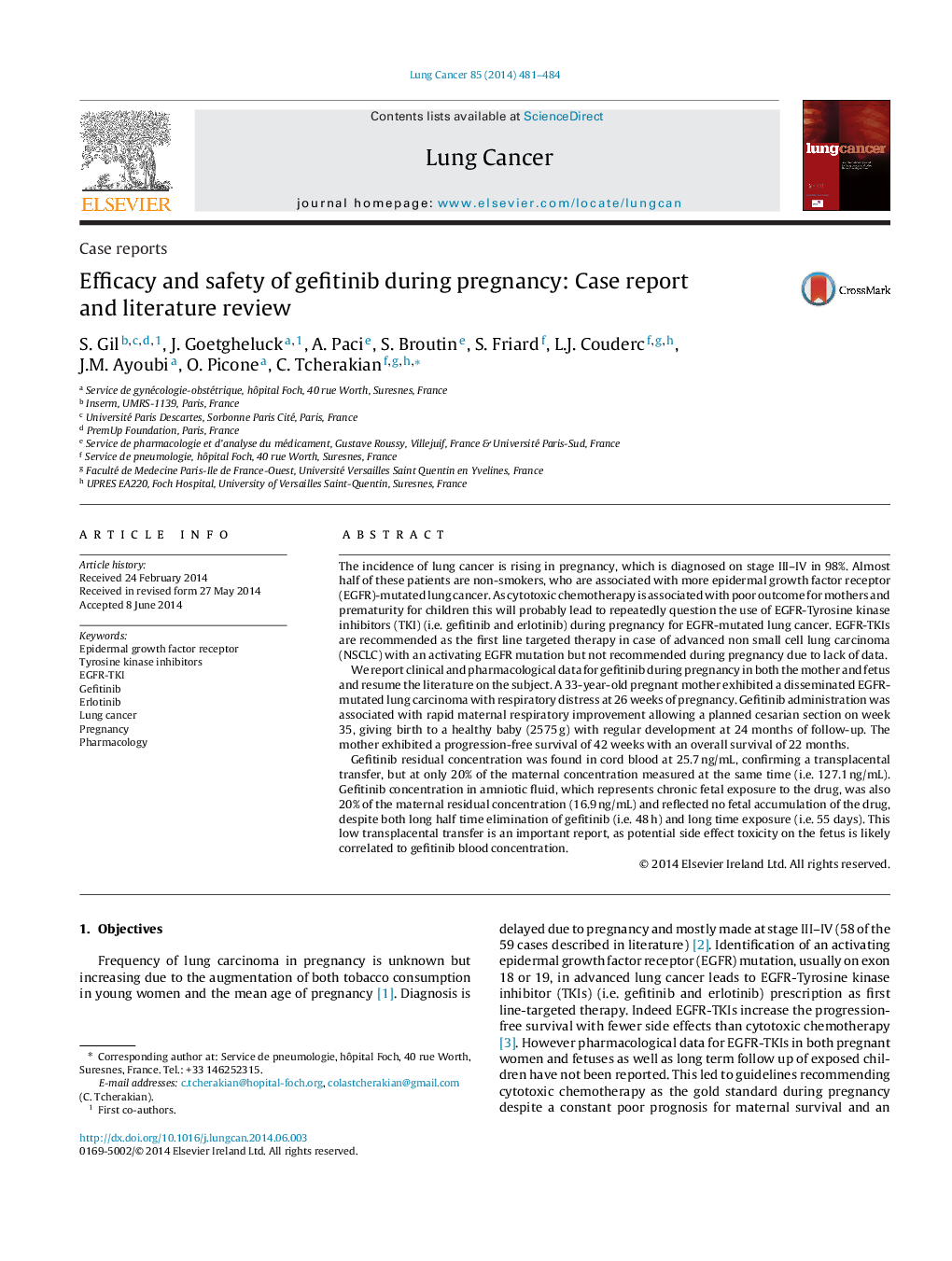| کد مقاله | کد نشریه | سال انتشار | مقاله انگلیسی | نسخه تمام متن |
|---|---|---|---|---|
| 2140918 | 1088269 | 2014 | 4 صفحه PDF | دانلود رایگان |
• During pregnancy gefitinib appears to have a good pharmacological profile.
• Residual concentration for gefitinib for the mother is within the lower range.
• Pharmacological data exhibit a low placental transfer of gefitinib.
• No accumulation was observed in fetus.
The incidence of lung cancer is rising in pregnancy, which is diagnosed on stage III–IV in 98%. Almost half of these patients are non-smokers, who are associated with more epidermal growth factor receptor (EGFR)-mutated lung cancer. As cytotoxic chemotherapy is associated with poor outcome for mothers and prematurity for children this will probably lead to repeatedly question the use of EGFR-Tyrosine kinase inhibitors (TKI) (i.e. gefitinib and erlotinib) during pregnancy for EGFR-mutated lung cancer. EGFR-TKIs are recommended as the first line targeted therapy in case of advanced non small cell lung carcinoma (NSCLC) with an activating EGFR mutation but not recommended during pregnancy due to lack of data.We report clinical and pharmacological data for gefitinib during pregnancy in both the mother and fetus and resume the literature on the subject. A 33-year-old pregnant mother exhibited a disseminated EGFR-mutated lung carcinoma with respiratory distress at 26 weeks of pregnancy. Gefitinib administration was associated with rapid maternal respiratory improvement allowing a planned cesarian section on week 35, giving birth to a healthy baby (2575 g) with regular development at 24 months of follow-up. The mother exhibited a progression-free survival of 42 weeks with an overall survival of 22 months.Gefitinib residual concentration was found in cord blood at 25.7 ng/mL, confirming a transplacental transfer, but at only 20% of the maternal concentration measured at the same time (i.e. 127.1 ng/mL). Gefitinib concentration in amniotic fluid, which represents chronic fetal exposure to the drug, was also 20% of the maternal residual concentration (16.9 ng/mL) and reflected no fetal accumulation of the drug, despite both long half time elimination of gefitinib (i.e. 48 h) and long time exposure (i.e. 55 days). This low transplacental transfer is an important report, as potential side effect toxicity on the fetus is likely correlated to gefitinib blood concentration.
Journal: Lung Cancer - Volume 85, Issue 3, September 2014, Pages 481–484
